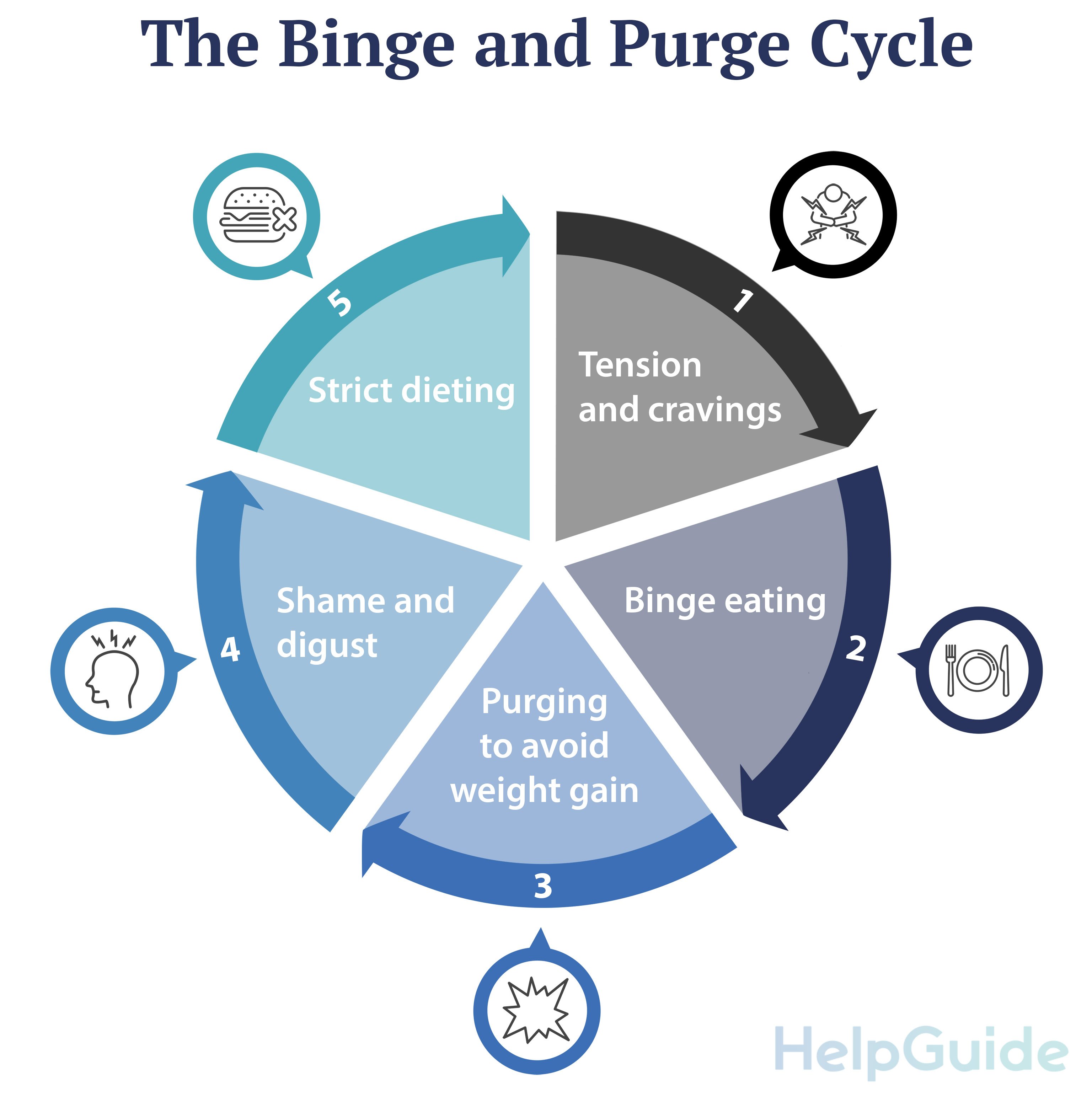The 7-Second Trick For Eating Disorder Recovery
Table of ContentsGet This Report on Eating Disorder RecoveryRumored Buzz on Eating Disorder RecoveryAll About Eating Disorder RecoveryAn Unbiased View of Eating Disorder Recovery
Nevertheless, duplicated and also incorporated practices like these might be an indication of an eating problem and also ought to be monitored. An individual's mood and how it is displayed or shared (affect) can provide some additional understanding into the chance that they are experiencing an eating problem. Indicators to watch out for include: social withdrawal or seclusion; rapid changes in mood; raised anxiety; and/or high degrees of control or obsessionality (which may or might not be associated with food or the body).Someone can be angry even if their exterior behaviour does not match what they really feel. While this might be the situation for everybody from time to time, this incongruence might be much more obvious in people with eating disorders. Modifications in social practices such as someone who was formerly social beginning to avoid going out with other people might be particularly informing if the pattern reaches many or every one of the person's social assistances, and if there is little else that would much better explain the change.
These checklists are not exhaustive, yet are intended to provide you with domains for factor to consider. Noticing a few of the signs might not be a reason for problem. It's when these changes begin to come to be distressing or disruptive to the individual or to individuals around them that closer focus should be paid.
You may be unclear concerning when and also where to begin or what to say. These feelings are essential and could develop part of the conversation you have.
6 Simple Techniques For Eating Disorder Recovery
Your main goal, for instance, may be to just 'sign in' with your enjoyed one to see if there is anything you can do to sustain them normally. Depending on the instructions of conversation, you might after that be able to share issue about current changes in practices or mindsets, consisting of those pertaining to food.
Keep in mind that these discussions take time, may need to be had a number of times, and also might not always have a clear end result. This is perfectly OK; it is essential to keep your very own expectations reasonable. Keep in mind the adhering to factors to assist you help with the conversation: Use non-judgmental and non-blaming language.
Give the individual the possibility to chat regarding their sensations if they wish to. Let them understand you are there for them. The fact that you are all set to use assistance if they want it can be handy for them to recognize, currently or in the future. Attempt to stay clear of thinking as if the person is the eating disorder.
Just as an ailment such as cancer does not define who someone is, an eating disorder should not Extra resources be seen this way either. Carefully urge treatment. Try to get the individual to their basic expert or one more certified wellness expert (such as a clinical psycho therapist) for an evaluation. If you pick up resistance, and if the person is not critically weak, hold your horses and relentless.
Unknown Facts About Eating Disorder Recovery
Do not try to offer a simplistic remedy. Examples of what not to say consist of 'Simply eat, you'll feel far better' as well as 'Simply do not bother with your body.' Individuals with an eating disorder do battle with consuming and do really feel terribly concerning their body, however the factor is to obtain them the help they need to recover, which isn't as simple as recommending that their thinking or practices is wrong.
Condemning yourself for a person's eating condition or blaming that person is unhelpful to everybody. Correspond. Adhere to routines as well as regulations for all members of a family, as opposed to distinguishing the person that might have an eating condition. If family suppers are typical, do not change the regular to fit the individual with the eating problem, no matter of whether they take part or not.
Seek professional aid. The most effective time to look for specialist support is as quickly as you understand or suspect something is wrong. You can start by chatting with a family doctor, paediatrician or various other health and wellness specialist you rely on to discover more concerning consuming conditions, get their point of view, or develop a strategy for how to help get your loved one to see an expert.

The Only Guide for Eating Disorder Recovery

Bear in mind that, while the path ahead of you can sometimes feel isolating, you are not alone in navigating this obstacle. Like your liked one, you as well are discovering taking care of the possibility of an eating disorder. Take a moment when you can to take a breath, procedure and also concentrate on establishing one foot in front of the other.
We all require to consume, as well as most of us look forward to consuming. More than nourishing our bodies, food is commonly a large component of getting with each other with the individuals we like. Undoubtedly, it's difficult to envision what life would certainly resemble without the several gatherings we have actually developed around sharing food.
Left untreated, eating disorders can bring about significant repercussions like body organ failureor also fatality. There are several different sorts of consuming problems, and some people might experience signs and symptoms of greater than one condition. The most common eating problems are: A problem characterized by deliberate initiatives to drastically limit food intake (in spite of reduced body weight), frequently to the point view of professional malnourishment.